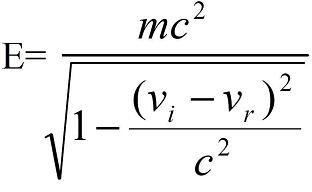jim wrote:A lot of cool ideas to unpack here. What do you mean by "computing into alternative realities?" Doesn't a computer do that any time it simulates an alternative reality?
Interesting thought about a FLOPS limit. At first glance, I am thinking that the construct of the RLL (Planck length and such) will put some physical limitations on speed because A. transistor (or whatever fundamental computational mechanism) density is limited, and B. speed is limited due to the Planck time. But then you have to consider that the way these systems achieve such high speed isn't through the speed of a single chip (otherwise they would be small systems), but through massive parallelism. I worked with parallel computing in the past and the challenge was always in the software - algorithms weren't really broken up into computational pieces, each to be processed by one physical computational element, but rather a blunt coarse approach was taken, whereby one processing element just handled specific processes. OK, lets say these systems overcome that problem, then theoretically you can continue to improve computing power through the multiplicative effect of more parallelism even when you hit the physical limit. But then you ultimately run out of resources because the resources on this planet are finite. But are the resources in the universe finite? I would submit that we could never truly simulate RLL with perfect accuracy using less than RLLs total resources. Other thoughts?
Lot to unpack

?
Always. That is why I love this forum so much and keep coming back. You guys are the best!
As usual, your thinking is pretty much along the same line as mine, as far as understanding goes —which is also limited.
Even if I could be inside you and see the world through your eyes, I still would not be you unless I was
only you. And if I was only
you, then I could no longer experience you, could I? [let that one sink in].
What I meant by "computing into alternative realities" is less about the computing itself, but really more about the nature of "information" in general. Which is why I used the term "centralized" computer which already takes into account this idea of parallelism (or even something simple as peer to peer processing).
Take communications like this in this forum for example (using the written word involving philosophy, epistemology, ontology, or metaphysics) —you almost have to stop and define what each word means in every sentence so that we will all know what we are talking about. At some point all "information" communication becomes imperfect like this (I can't define every word in every sentence —it would become incomprehensible).
Which rolls right back into this topic. All communication is "information." All information is imperfect. I think it is pretty easy to agree that consensus reality has limits for us personally. Our consensus agreement on what "we see" as "truth" or "reality" or "information" —is never perfect (or at least gets pushed out to the fringes).
On the computing into "alternate realities" I guess I am just treating "information" that a Turing machine can compute —as nothing unless and until another reference object (like you, me, another human or another Turing machine) interprets it or rightly understands the data and therefore the computation becomes something in this reality.
If we build a machine that has so much computing power that it equals or surpasses the computing power of the planet, then I am guessing that any of that "information" that is being "Computed" will be so meticulous and precise (in "truth") that it would also have to be capable of producing information "outside" our human understanding of the information.
This all goes back to my 2012 patented algorithm developed from what I see as the "collapsing" nature of reality equation.
 Disclaimer: I fully understand that this equation makes no sense because it just collapses on itself, but that is what this is supposed to do. It is the very nature of an imperfect 'observation" "communication" "information/" In other words "being" at its heart (and it has to collapse because all knowledge is fleeting). We just think we know "stuff"
Disclaimer: I fully understand that this equation makes no sense because it just collapses on itself, but that is what this is supposed to do. It is the very nature of an imperfect 'observation" "communication" "information/" In other words "being" at its heart (and it has to collapse because all knowledge is fleeting). We just think we know "stuff" What this equation is —is similar to what the "Stranger Things" show writers call the "upside down" or other sci-fi call the "multi-verse" (or more specifically what our universe looks like as viewed from another universe). But the "weird" thing is that it should also work here in this reality as well.
So, with this very loose explanation of "information" and "computing" —I like what you say here:
Quote:"you ultimately run out of resources because the resources on this planet are finite."
Not only is the computing power of the universe infinite, but that the number of universes is also infinite.
And again, the "weird" thing is that ultimately, you still have to fold it back in on itself so that in order to make all this "computing" actually compute "something" or "something sensical" it has to compute an "observation" or "understanding" or "information." Such a powerful computer would have to be capable of computing "truth" that is not even "information" at all. Right?
Our understanding of things (or ability to observe and comprehend) on the other hand is very finite. Therefore actual "information" with any "meaning" (at all) remains very finite.
So, a Turing machine that hits this FLOP limit (I'll call the Planck limit of computation for lack of a term) is also finite. After that, it starts computing "$#!+" we don't and can't understand.
Again, just my thoughts.
